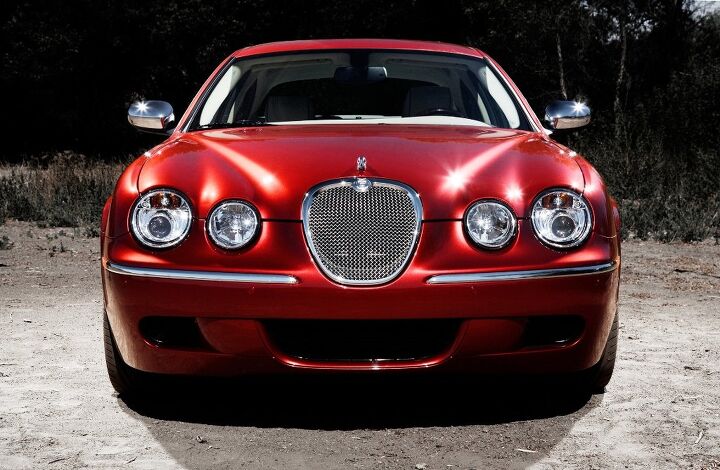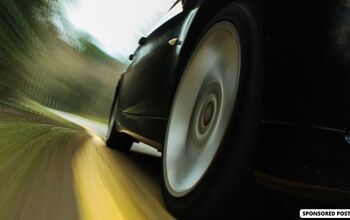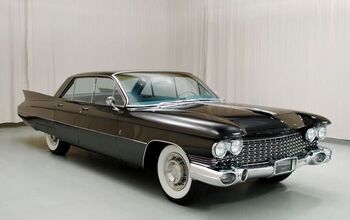Piston Slap: The Cat's Meow for OEM or Aftermarket Parts?

John writes:
I recently had a local shop confirm the need for O2 sensors in my Jaguar S-Type. With 97,000 miles on them, it seems very likely they need replacement, and the mechanic wants to install factory sensors at the cost of some $650 for the parts. I can purchase Denso or Bosch from the local parts store for less than $200. As these parts were originally designed to last at least 80,000 miles (Federal warranty requirement), I figure that replacements from any reputable source will last quite a long time.
What is your opinion as to brand specific parts versus more generic replacement parts?
I suspect the original supplier was actually Bosch anyway so in my mind they are the same.
Sajeev answers:
Your last sentence is my usual go-to statement, especially as cars depreciate to the age of any Jaguar S-Type. I still remember cringing when my trusted mechanic, some 15+ years ago, said my father’s Mark VIII’s (not the one I currently own) intermittent fuel smell was from leaky injectors. The replacement injectors cost $800, and they were a unique part number with no aftermarket alternative.
Perhaps that’s what he thought since it was the first Ford with that particular engine, but it was all bullshit: all Fords with that engine use the same 24 lb-hr injectors. I grabbed my Ford Motorsport catalog and ordered a set for $275-ish, delivered to the shop, and crossed my fingers for a seamless install. Thank goodness I was right.
Back to the “value” of factory vs. aftermarket parts on a heavily depreciated motor: it really depends. Factory body parts? Yes. In this case? No, get Bosch O2 sensors and pocket the extra cash.
Forget about the price, odds are they are the original equipment manufacturer (OEM) anyway. Sometimes you’ll even get a factory part when buying the “aftermarket” brand: happened to me when purchasing TRW control arms and several HVAC parts. And it’s nice to see those factory castings, part numbers or packaging when you’d never pay for them. It’s kinda like poppin’ tags, sort of.
When do you buy OEM bits, Best and Brightest?
[Image: Jaguar]
Send your queries to sajeev@thetruthaboutcars.com. Spare no details and ask for a speedy resolution if you’re in a hurry…but be realistic, and use your make/model specific forums instead of TTAC for more timely advice.

More by Sajeev Mehta
Latest Car Reviews
Read moreLatest Product Reviews
Read moreRecent Comments
- Daniel J How is this different than a fully lifted truck? I see trucks rolling off the lot with the back lifted already, and then folks get the front lifted to match. Are there specific "metrics" at how high they can and can't be? The example shown has the truck's front lifted more than normal, but I've seen these around here where the backend is dropped and the front end is at a regular height.
- Theflyersfan I think color is FINALLY starting to return to car lots. After what seems like over a lost decade of nothing but shades of gray, whites, and black, I'm seeing a lot more reds and blues creeping into luxury car lots. Except Audi and Volvo. They still have at least 6-8 shades of gray/silver. But they at least have a nice green. Honda and Acura seem to have a bunch of new colors. And all carmakers need to take a serious look at the shades of red seen at the Alfa Romeo lot and tell themselves they want that because that looks amazing.
- Bd2 Well, it's no Sonata, no does it have the panache of the Optima.
- Teddyc73 "eye-searingly"?
- Teddyc73 I applaud anyone who purchases a vibrant, distinct or less popular color. We need these people. Our road ways have turned into a dreary gloomy sea of white, black, silver and greys, most with the equally lifeless black wheels. Mr Healey is guilty of contributing to this gloom apparently. It looks like a black and white movie across the nation when grouped with our grey houses with grey interiors. Totally dull and lifeless. And what is with this awful hideous trend of dull grey with black wheels showing up everywhere? It's on everything. Just awful. Come on people! I'll keep my Ram 1500 with it's deep rich sparkling Western Brown paint as long as I can.


































Comments
Join the conversation
Plus, it's Bosch. It's not some no-name outfit you've never heard of (which, itself, probably wouldn't be the end of the world). Buy them.
My Mazda 5 had quite a few suspension issues early on. I replaced all the Mazda stuff that had issues with non OEM stuff. No problems in the 25k since most of the work done, on PA's awful roads with mostly city driving. I've found that every so often, the OEM stuff is the best bet. The rear wiper on the Mazda 5 is a Mazda only part, all the aftermarket blades don't work well, leaving a large area uncleared. It's worth the $20 every two years for the properly functioning part.